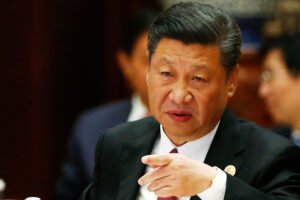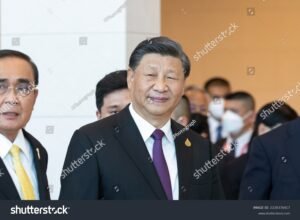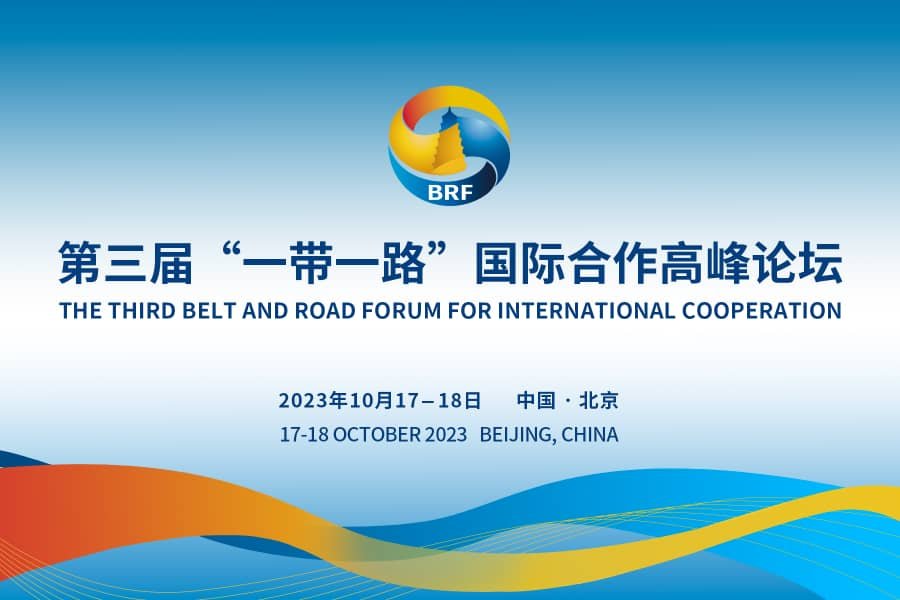

By – Lawal Sale
Abuja (Flowerbudnews): China’s Belt and Road Initiative (BRI), an initiative of Chinese President Xi Jinping, marks its 10th year of existence this October.
As part of the activities to celebrate the 10th Anniversary of the BRI, over 100 world leaders signatories to the initiative and cooperation partners are to assemble in Beijing between October 17 and 18 for the 3rd Belt and Road Forum with a theme: “High Quality Belt and Road Cooperation: Together for Development and Prosperity”.
BRI, also known as “New Silk Road” is a programme aimed at building a Silk Road Economic Belt and 21st Century Maritime Silk Road, in cooperation with related countries.
The Initiative was unveiled by President Xi Jinping during his visit to Kazakhstan and Indonesia in 2013 and so far, there are 152 active signatories to the cooperation agreements of the initiative from all corners of the globe.

The Initiative focuses on promoting policy coordination, connectivity of infrastructure and facilities, unimpeded trade, financial integration and closer people-to-people ties via consultative processes and joint efforts with the overall goal of bringing appreciable benefits to all.
Meanwhile, the Initiative and its core concepts have been incorporated into the schemes of the G20, the Asia-Pacific Economic Cooperation (APEC), the Association of South East Asian Nations (ASEAN) and the Shanghai Cooperation Organization.
The BRI has become an important platform for achieving the United Nations (UN) 2030 Agenda for Sustainable Development.
It is pertinent to note that since its debut in 2013, the initiative has progressed with remarkable vigour and vitality, while benefiting many countries among its members and other partners around the world through joint efforts and participation.
At the moment, the BRI has become one of the most popular international platforms that are specifically designed to promote all-round multilateral cooperation.

Chinese President Xi Jinping urged world leaders to reject protectionism on May 15 at a summit positioning Beijing as a champion of globalisation, as some countries raised concerns over his trade ambitions. / AFP PHOTO / POOL / THOMAS PETER (Photo credit should read THOMAS PETER/AFP/Getty Images)
China and its cooperation partners have foregrounded and upheld the principle of extensive consultation, joint contribution and shared benefits. They have also remained committed to the vision of open, green and clean cooperation, while pursuing excellent, people-oriented and sustainable development, so as to explore new opportunities and stimulate growth in the world.
In the first decade of its existence, perceptive observers have noted that the achievements of the BRI are multifaceted.
The perceptible feats include the development of cooperation partners and the promotion of the people’s well-being, among others. The Initiative has also helped to foster new energies for economic development.
For instance, a report of the World Bank disclosed that the BRI had increased the trade of participating partners by 4.1%, attracting 5% more foreign investment and levelling up the GDP of low-income countries by 3.4%.

Similarly, as part of the accruing benefits, the GDP share of emerging and developing economies in the world has increased by 3.6% from 2012 to 2021.
The World Bank further estimated that by 2030, the BRI would generate $1.6 trillion in global revenue each year, accounting for 1.3% of global GDP from 2015 to 2030, while not less than 40 million people would be lifted out of poverty under the auspices of BRI.
Another notable achievement is that by the end of 2022, the investments of Chinese enterprises in the cooperating countries have created 421,000 local jobs, with more than 3,000 projects being executed; thus fulfilling the development aspirations of the people in many participating countries of the initiative.
In terms of financing, multilateral financial cooperation institutions such as the Asian Infrastructure Bank, Silk Road Fund and the New Development Bank were established to address potential funding challenges that could inhibit the provision of the needed infrastructure in the developing countries.

In the last 10 years, the BRI has also facilitated connectivity between China and countries along the Belt and Way route in the five priority areas.
As of the end of June 2023, China has signed more than 200 contract agreements on jointly ventures under the BRI with 152 countries and 32 cooperating partners. And from all indications, trade has grown exponentially between China and its partners in the BRI in the past decade.
Through the BRI platform, China has been able to establish a connectivity framework involving six corridors — a unique kind of routes that significantly promoted the connectivity of landlocked countries in the Asian region such as Kazakhstan, Nepal and Laos with the world — by building roads and railways.
Besides, there is an intercontinental China-Europe freight railway, which is currently hauling goods from China to many European countries at a minimum period of time. This freight rail express has opened up a novel channel of trade between Asia and Europe by land, thereby becoming an anchor of stability for global supply chain.

As regards the African continent, there is no gainsaying the fact that in the last 10 years, the continent has benefited from BRI’s projects massively.
This is probably due to the fact that China believes that Africa is part of the history and natural extension of the BRI.
The declaration of the Forum on China-Africa Cooperation (FOCAC) in 2018 in Beijing and its 2019-2022 African Plan emphasised that Africa occupied an important position in the BRI Cooperation. Today, many African countries witnessed the emergence of infrastructure projects such as roads, railways, dams, airports, seaports, health facilities and sports facilities, among others.
Although the initial focus of the BRI was on Asia, Africa later received the particular attention of the Initiative with major investments in East Africa, where Beijing, under the BRI platform, initiated a range of infrastructure development projects in Kenya, Ethiopia and Tanzania.
In Kenya, the multi-million dollar Nairobi-Mombasa Standard Gauge Railway (SGR) was built for passengers and goods on that route. In Ethiopia, a similar SGR project was executed and completed and it is known today as Addis-Djibouti railway. In Tanzania, there is TAZARA railway linking the port city of Dar el Salam in Tanzania with Zambia’s central province.
On the other hand, Nigeria in West Africa has had a fair share of the BRI infrastructure projects in the last 10 years. Some of the projects include Abuja-Kaduna standard gauge rail line, Abuja metro rail system, Lagos-Ibadan standard gauge rail line, Lekki Deep Sea Port in Lagos, five new airport terminals in Lagos, Abuja, Port Harcourt, Kano and Enugu, Zungeru Hydro Power Plant as well as Abuja township roads.
In spite of the growing incidence of trade protectionism and unilaterism across the world, trade and infrastructure development projects involving China and African countries have continued to flourish significantly, thereby signifying deepening economic relations between the two sides.
President Xi Jinping, in his address in 2019 on the sidelines of the G20 Summit in Osaka, Japan, said that China and Africa had become strategic partners, while assuring that the fundamental aspirations of China and Africa for a robust cooperation and development would remain unchanged regardless of any external influences and extraneous factors.

The Chinese leader then reiterated that the concerted resolve of China and Africa to jointly build a closer community with a shared future would not waver. (Flowerbudnews)

Lawal Sale is an Abuja-based Global Affairs Analyst. (lawalmaida1@yahoo.com)









